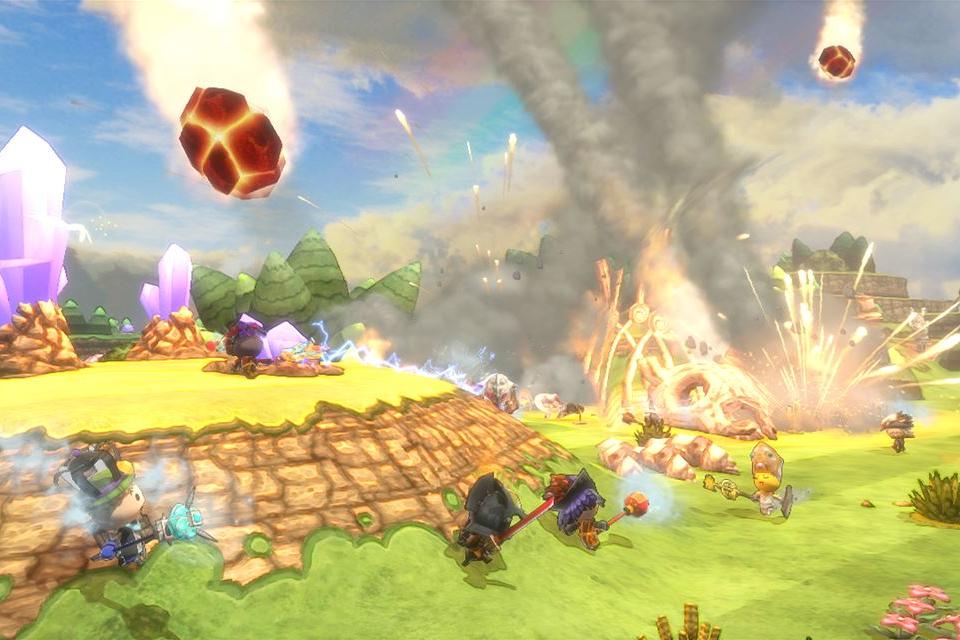


Ten years and a couple of days ago, a console was introduced to a jaded gaming audience. Most "experts" claimed that the move was a mistake and that no newcomer could compete with Nintendo and Sega, the established console manufacturers of the time.
December 3, 1994 was not just an important day for gaming; it was the day a vision came to life. In order to better understand the reasons behind its success it is useful to consider that many of you reading this, officially belong to the Playstation Generation.
In a world of super fast hedgehogs and Italian plumbers with an attitude, Playstation rocked the boat by suggesting that full grown adults could own a console and still be cool. In order to achieve this move, Sony had to time everything to perfection. The time was technologically right for gaming to take that one step beyond. Console capabilities could provide enough power to make more adult themed games while at the same time a sleek design and a variety of extra functions provided a good enough excuse for the console to move into the living room.
Sony was the first company to combine youthful vibrant music with its games, making the entire experience an essential accessory for young adults. At the same time Sony, wisely using its contacts in the music and movie worlds, associated its console with all the big names so that all music stars had a console in their tour bus and all actors in their trailers.
The progress of the Playstation console through the past ten years has also been remarkable. The original Playstation was succeeded by the bulkier Playstation 2 and was eventually revamped to become the PS One. Then, recently, the PS2 lost some weight for no obvious practical reason except to celebrate its 10th birthday.
The December 3, 1994 launch in Japan was followed by a graded global introduction which within a year saw the Playstation available all over the world and which by early 1996 had brought Sony 3.4 million hardware unit sales. It must have been at that point that Sony realised that it had not merely entered a new market but that it had probably tapped into a goldmine. That knowledge made the company realize that it had to keep moving in order to maintain its advantage over the competition which, after all, was going after a market Sony had created.
In that light Sony worked hard to prepare the Playstation's successor and just as the Millennium celebrations were dying out, it introduced the Playstation 2 to an eager gaming market. Within four years, March 2004, Sony had moved 70 million PS2 units, confirming its dominance in a market which, during those four years, has become extremely competitive.
The launch of Microsoft's XBox console and of Nintendo's GameCube have made the PS2 the least powerful current generation console but sales have not suffered, in some cases even increasing following rival console launches.
Despite the competition, Sony announced, just a few months ago, that its consoles have now reached the mythical 100 million units shipped figure.
As the market has matured Sony has spotted another possibility arising with handheld gaming. The company has decided that handheld gaming should graduate and adults should get the chance to try it out. Using the same tricks, hip music, sleek design and added functionality, the Japanese giant hopes to take Nintendo on again. The PSP will try to make closet adult handheld gamers come out and declare their love for commuter gaming.
The continued success of the Playstation however, has generated a lot of criticism regarding the ways it has been achieved. Sony has been accused of using strong arm tactics and of throttling developers into exclusive deals by waving its cash around.
It is certain that the Playstation's success could not have been achieved without Sony keeping very busy in the background. Exclusive deals and franchise creation have been the company's strengths and have led the consoles to the heights they have reached. The positive impact of these deals on gaming overall however is debatable. Sony has pursued a very aggressive policy in securing studios but the need to guarantee success has led to a very formulaic approach to game development, while the PS 2 hardware limitations have led to a specific type of game thriving while other genres have struggled to survive. At the same time exclusivity agreements have meant that some interesting game ideas have never had the chance to be realized on other platforms, limiting the potential audience.
The arrival of further competition, in the shape of Microsoft's XBox and Nintendo's GameCube, has only intensified this race for exclusivity with developers recently claiming that the need for sales has led them to focus on established sequels and movie tie-ins, resulting in the neglect of original and creative ideas.
Sony is also facing another problem. Its ambitious plans for the PS3 and its Cell processor, have led to the console not being ready before 2006. With both its rivals expected to introduce their products in 2005, this delay may cost Sony much of its lead, especially if there is enough of a technological leap to make the PS2 obsolete.
Love it or hate it the Playstation has created an army of gamers moving gaming from the University campus to the high-street and has taken gamers from geek to hip. The cultural impact of Sony's console has also been immense, it has ranged from the completely negative (Manhunter, GTA etc.) to the very positive but has always managed to remain in the spotlight. The importance of the PS also lies in the way it generated a response from the other gaming forces. PC and other forms of console gaming had to react to the PS in order to remain viable and this has created a constant movement in gaming, a movement which has had both positive and negative results but one which has kept the field as interesting and as exciting as ever.
So let us all join our glasses and toast the Playstation on its tenth : The Playstation is dead, Long live the PlayStation.








